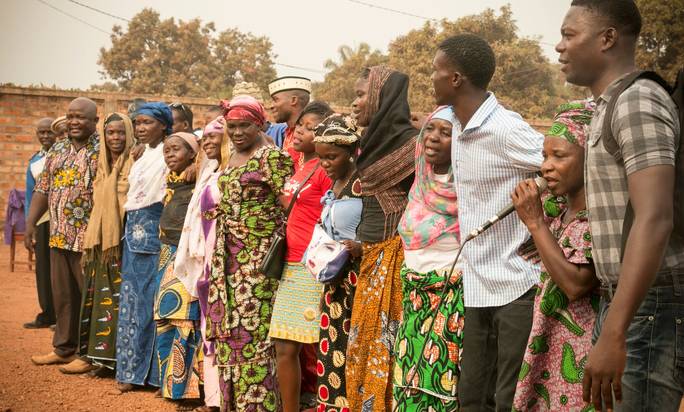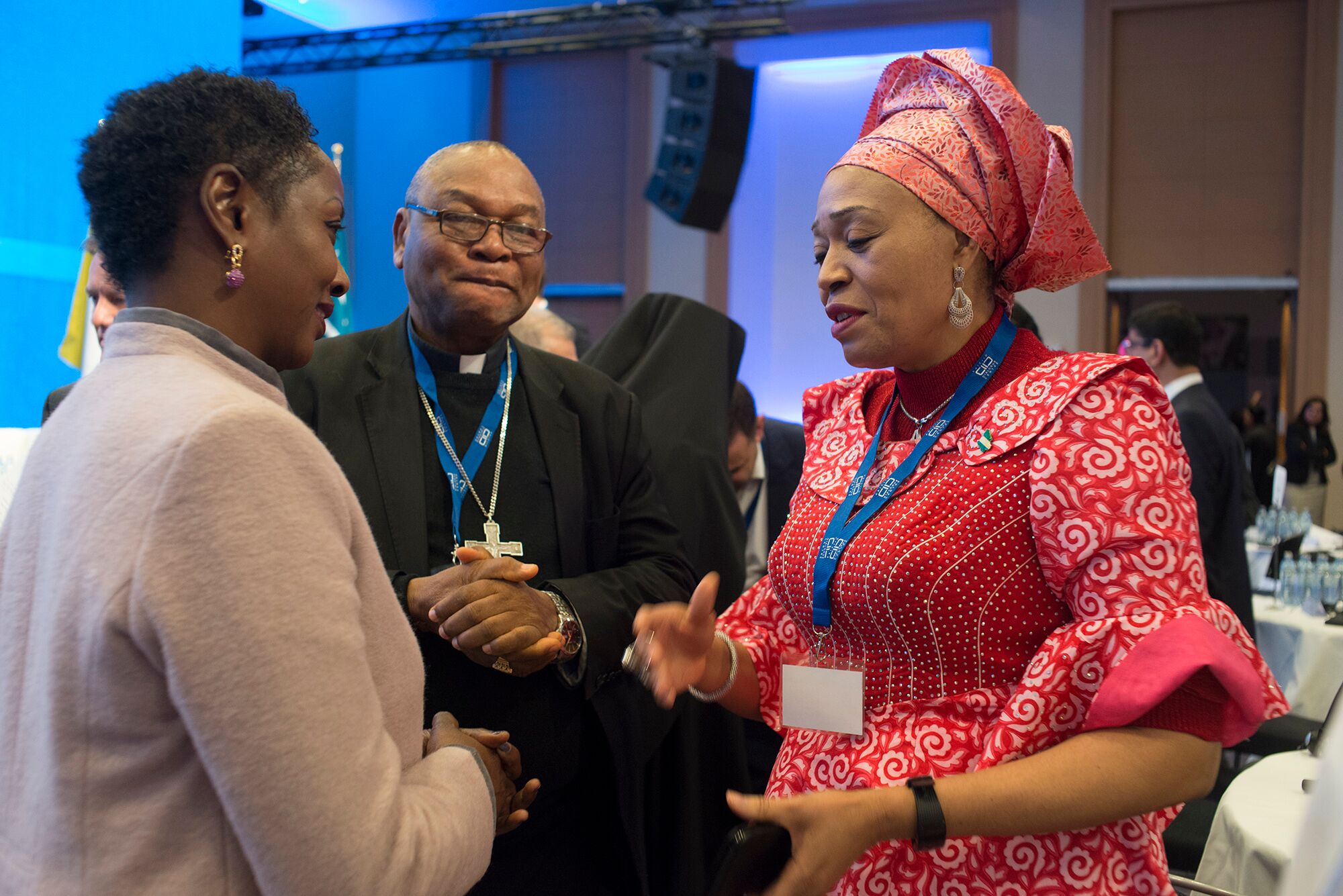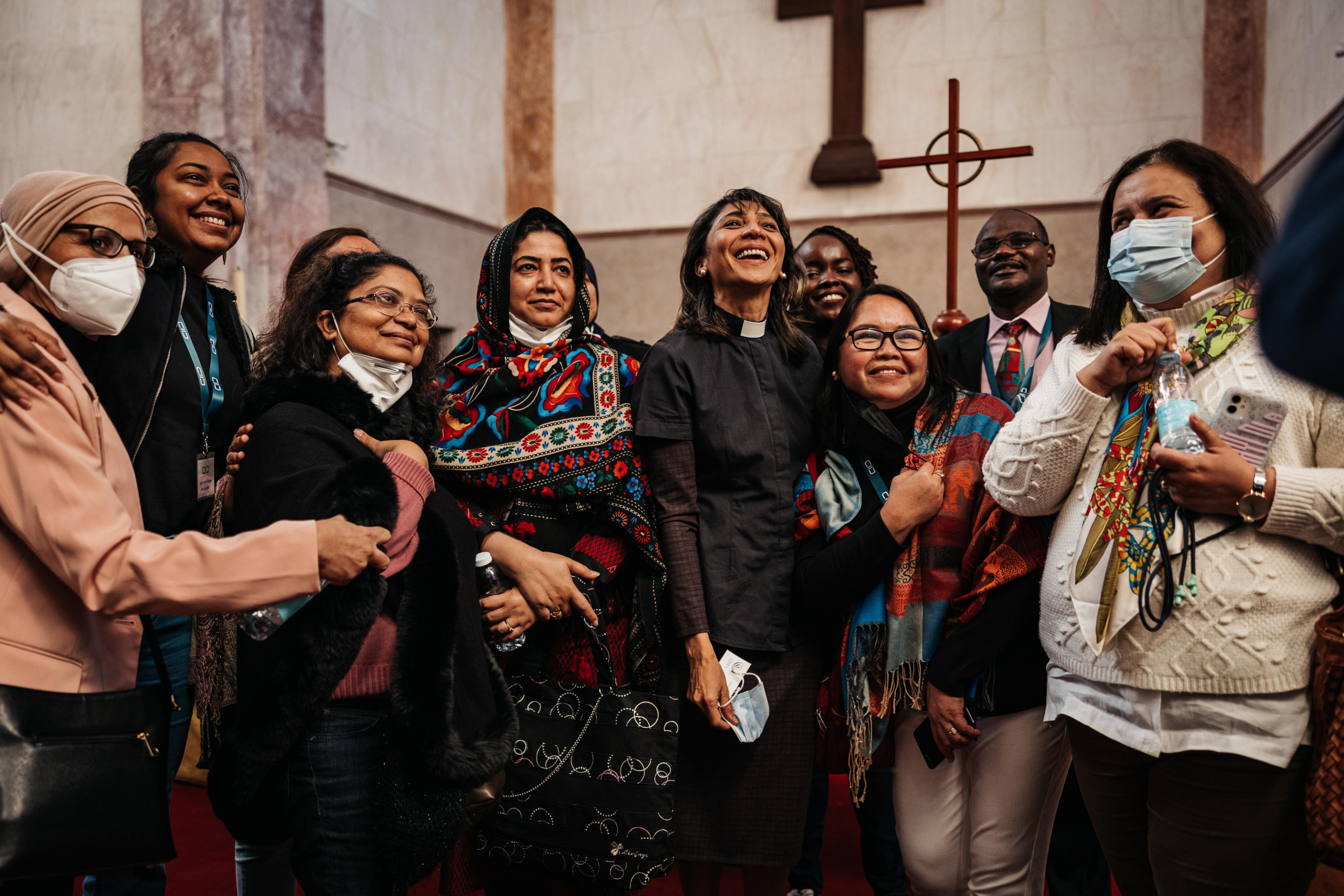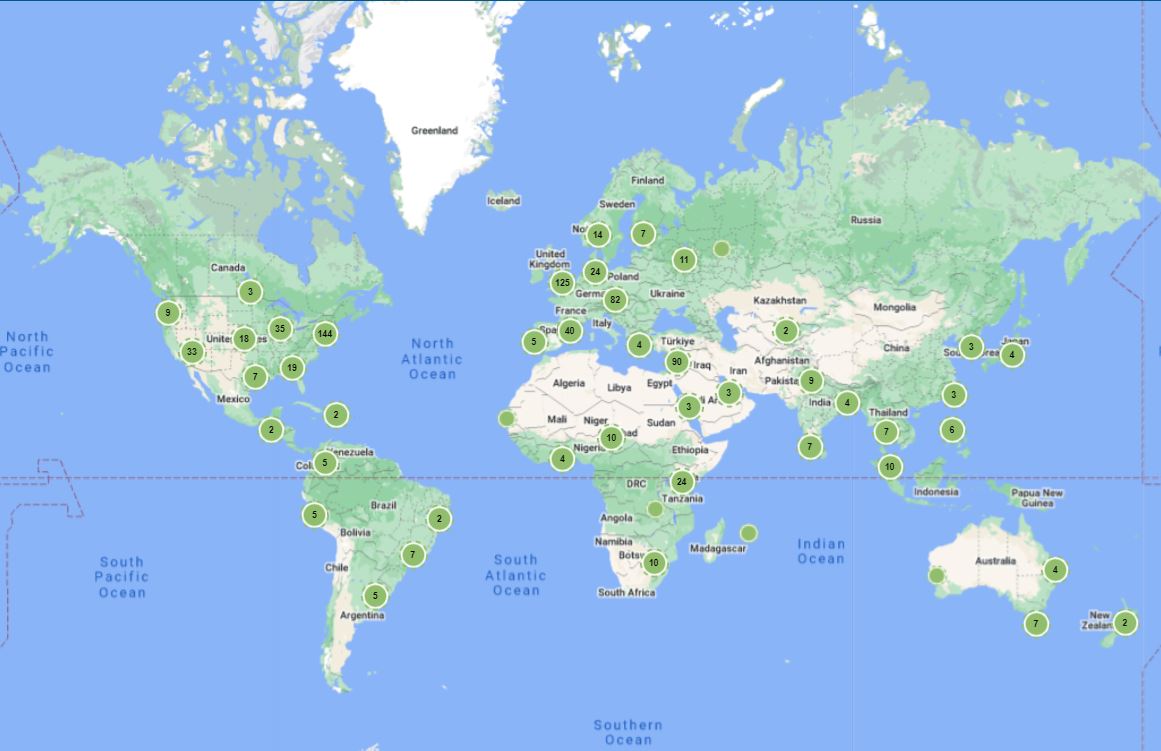Promising Practices
Promising Practices is a collation and expansion of existing documentation on promising practices in interreligious dialogue. Our database offers guidelines and focuses on the concrete implementation of interreligious and intercultural dialogue practices around the world.

Disclaimer:
Through providing different aspects and ideas our aim is to compliment the great work that has been already done in the field of Interreligious and Intercultural Dialogue. Information and field data published in this resource are for informational purposes only, and neither KAICIID nor the Dialogue Knowledge Hub guarantee in any way success of the implementation of the activity.
While we wish all the activities and initiatives featured in this resource could be replicable in as many context around the world as possible, there are often certain limitations, such as the suitability for particular cultures or religious communities. However, there is always room to explore and adjust activities in regards to the community’s environment.
- Czech Republic
- India
- Ireland
- Lebanon
- Poland
- Russia
- Confessional / Religious / Spiritual Activities
- Diplomacy
- Freedom of Religion and Belief
- Intercultural Dialogue
- Interreligious Dialogue
- Intrareligious Dialogue
- Networking
- Peace
- Youth
- Buddhism
- Christianity
- Hinduism
- Jainism
- Judaism
- Multireligious
Interfaith Prayer
The practice of interfaith prayer is an initiative that can take place anytime, anywhere. It is especially appropriate when there is a natural disaster or tragedy affecting a community. It can also be used during times of peace. Interfaith prayers aim to emphasize the common values of the religions involved. It can also be used when and important religious leader passes away. This gives believers of different faiths the opportunity to come together in an act of solidarity and goodwill. Another form of interfaith prayer involves believers from different denominations of the same religion uniting for prayers at the same location and praying in the same language. This aims at compensating for reduced resources of religious minorities, while giving participants the opportunity to unite with people of different practices in a common prayer. An organization can also invite individuals to a gathering, where they reflect on scriptures from different religions. These workshops emphasize the similarities between religions, instead of just highlighting the differences. Interfaith prayers require a space where individuals can gather, regardless of their faith, to observe a moment of prayer, meditation, or silence, thus share a spiritual moment side by side.
- Costa Rica
- Cyprus
- Ireland
- Madagascar
- Rwanda
- USA
- Advocacy
- Capacity Building & Empowerment
- Confessional / Religious / Spiritual Activities
- Democracy
- Diplomacy
- Educational Programmes
- Environment
- Freedom of Expression
- Freedom of Religion and Belief
- Information Distribution
- Intercultural Dialogue
- Interreligious Dialogue
- Intrareligious Dialogue
- Networking
- Peace
- Pluralism
- Shared Human Values
- Social Cohesion & Citizenship
- Social Work & Community Service
- Youth
- Bahai Faith
- Christianity
- Islam
- Judaism
- Multireligious
Youth Empowerment
It is important to train and empower the youth to engage in interfaith dialogue and activities, for they are the future of societies, communities, and nations. Youth can be engaged through intensive activities and events for high school students from various religious backgrounds. Students can gather from across a country to participate in discussions, visit different houses of worship, engage in workshops on religions, spirituality, peacemaking, and leadership, and translate beliefs into action through service and justice events. The practice is supervised by mentors, and empowers young people to be leaders for social change and to foster relationships across religious communities. The youth can also be trained to be successful peace ambassadors. Young individuals of all faiths receive training on peace and interfaith dialogue throughout the year. The organization in question thus insures that the next generation is putting their learned skills to good use, and is capable of taking on responsibilities in the future. Other activities can also teach the youth conflict mediation. For example, “Better your Country”, a two-day event based on interfaith dialogue as a means to appease tensions among society, puts the youth at the forefront of mediation, and engages them in discussions on conflicts or issues affecting the country. This event aims at gathering young people from different cultural backgrounds and beliefs to display and share a variety of narratives and opinions.
Classrooms are also a great environment to foster interfaith dialogue and youth empowerment. An easy activity that can be implemented is the Love Dice, a paper-made educative tool. It aims to teach students about shared human values by playing with the Love Dice each morning and establish a goal for each day. On each side of the Dice students write universal values of caring and love, and thus playing with the Dice empowers them to share their cultures, beliefs, and their values based on the chosen universal value that they throw for that day. This goal revolves around treating others how one would wish to be treated, regardless of their cultural or religious identity. Moreover, interfaith dialogue and empowerment can be implemented through the educational curriculum.
Extra-curricular activities such as camps and scouts are a rife space for youth engagement and training. The InterFaith Youth Camp gives youth the opportunity to engage in change and contribute to their society and community. This small camp provides them with knowledge and gives them a space to build friendships from different religious, faith, and cultural communities. Similarly, the scout movement can enable young people of different backgrounds to meet through the scout movement. In Madagascar, people of the three different Scout branches (Catholic, Protestant and Lay) have decided to join hands in order to create more collective activities.
This practice welcomes children of all backgrounds and embraces their individual identities. It acknowledges the child’s experience, affirms their core sense of identity and belonging, and seeks to nurture their developing sense of environments and communities (home, school, local community, and faith or belief community, civil society). It endorses the youth’s faith and belief, thus it influences their sense of identity and belonging while it nurtures their sense for justice and peaceful coexistence.




